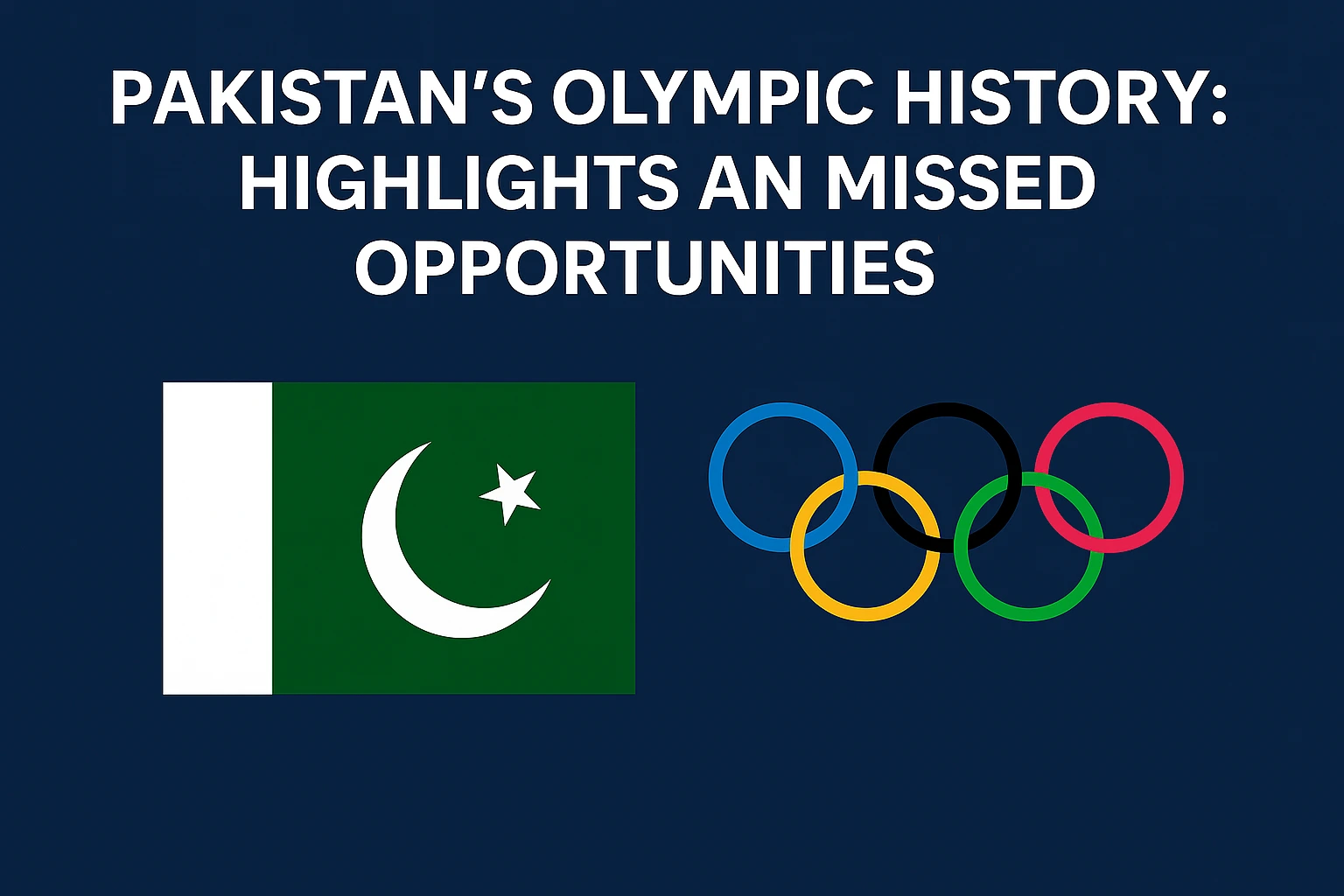Regarding global sporting events, the Olympic Games hold a special place in every country’s heart. Pakistan’s Olympic story is one of proud moments mixed with frustrations—moments of glory in hockey and missed chances in other sports. Have you ever wondered why Pakistan, despite its talent pool, hasn’t made a bigger mark at the Olympics? Come with me as we explore this amazing adventure filled with highs and lows.
Early Beginnings and First Appearances
Pakistan first dipped its toes into the Olympic waters in 1948, just a year after its independence. The country sent a modest delegation, eager to showcase its sporting talents on the world stage. However, the early days were challenging—limited resources, a nascent sports infrastructure, and a lack of international experience all stood in the way. Still, Pakistan’s athletes displayed determination, laying the foundation for future participation.
Golden Era in Field Hockey
No discussion of Pakistan’s Olympic history can skip its legendary field hockey achievements. Pakistan’s hockey team was a force to reckon with from the 1956 Melbourne Games to the 1984 Los Angeles Games. The nation clinched three gold medals (1960, 1968, 1984), cementing its reputation as a hockey powerhouse. Players like Hassan Sardar and Samiullah Khan became household names, inspiring pride nationwide. This golden era brought medals and united the nation under the banner of sportsmanship and excellence.

Notable Olympic Medals and Achievements
While hockey brought Pakistan its shining moments, the country also earned medals in wrestling and boxing. For instance, Muhammad Bashir won a bronze in wrestling at the 1960 Rome Olympics, becoming the first individual medalist outside of hockey. These successes, although fewer in number, hinted at Pakistan’s diverse athletic potential.
Challenges Faced by Pakistani Olympians
Behind these achievements lies a tale of struggle. Pakistani athletes have long battled insufficient training facilities and outdated infrastructure. Funding constraints often force promising athletes to train under subpar conditions or seek opportunities abroad. Administrative mismanagement and political interference have further complicated matters, leaving many athletes unsupported during crucial phases of their careers.
Missed Opportunities and What Could Have Been
The story is peppered with “what ifs.” Many talented athletes slipped through the cracks due to insufficient support or exposure. Close calls, like narrow misses in boxing bouts or near-podium finishes in wrestling, could have dramatically shifted Pakistan’s Olympic narrative. Controversies over selection and preparation sometimes robbed teams of their full potential, leaving fans and experts wondering what could have been if the system had been stronger.
Recent Participation and Performance Trends
In recent decades, Pakistan’s Olympic presence has been modest. The focus on hockey has diminished somewhat, with sporadic success, and efforts to develop other sports are underway but face many hurdles. Although young athletes are still trying to turn around the nation’s Olympic fortunes, steady progress is still challenging.
Role of Government and Sports Authorities
The role of government and sports authorities is pivotal. Although programs have been started to promote Olympic sports, development has been impeded by erratic regulations and a lack of long-term planning. Compared to countries investing heavily in athlete development and scientific training, Pakistan’s approach has often been reactive rather than proactive.
Public and Media Perception of Pakistan’s Olympics
Interestingly, public enthusiasm and media coverage tend to focus more on cricket and hockey, sidelining other Olympic sports. This uneven attention impacts funding and grassroots growth for lesser-known disciplines. Without widespread public interest, nurturing future Olympians becomes tougher.
Inspirational Stories from Pakistani Olympians
Despite these challenges, Pakistan’s Olympians have inspired countless stories of grit. From athletes overcoming socio-economic barriers to those training abroad under harsh conditions, their journeys remind us that passion often transcends limitations. These role models continue to motivate the next generation to dream bigger.
The Future of Pakistan at the Olympics
Looking ahead, the future can be bright if lessons are taken seriously. Sports like athletics, squash, and wrestling hold untapped potential. Emphasizing grassroots development, scientific training, and mental conditioning will be key. Moreover, a robust talent identification and nurturing system can lay the groundwork for sustainable success.
Collaborations and International Exposure
Pakistan’s athletes stand to gain immensely from international collaborations. Training camps abroad, exchange programs, and partnerships with global sports organizations can bridge gaps in knowledge and experience. Exposure to world-class competition and coaching can be the catalyst Pakistan needs to move forward confidently.
Conclusion
Pakistan’s Olympic history is a story of remarkable highs and frustrating lows. From the pride of hockey golds to the disappointment of missed chances, it mirrors the country’s broader sporting landscape. Revitalizing Pakistan’s Olympic journey requires vision, commitment, and unity among athletes, authorities, and fans. The dream of Olympic glory is alive—waiting for the right moment to shine again.
FAQs
Q1: What was Pakistan’s first Olympic medal?
Pakistan won its first Olympic medal in 1956—a silver in men’s field hockey.
Q2: Why is field hockey Pakistan’s strongest Olympic sport?
Field hockey has deep roots in Pakistan’s sports culture, with strong domestic leagues and passionate talent development contributing to consistent Olympic success.
Q3: What are the main reasons for Pakistan’s limited Olympic success?
Limited infrastructure, lack of funding, administrative challenges, and insufficient grassroots development have all played a role.
Q4: Has Pakistan participated in the Winter Olympics?
No, Pakistan has not yet participated in the Winter Olympic Games.
Q5: What steps are being taken to improve Pakistan’s Olympic performance?
Efforts include increasing funding, improving training facilities, encouraging international exposure, and focusing on talent scouting in diverse sports.